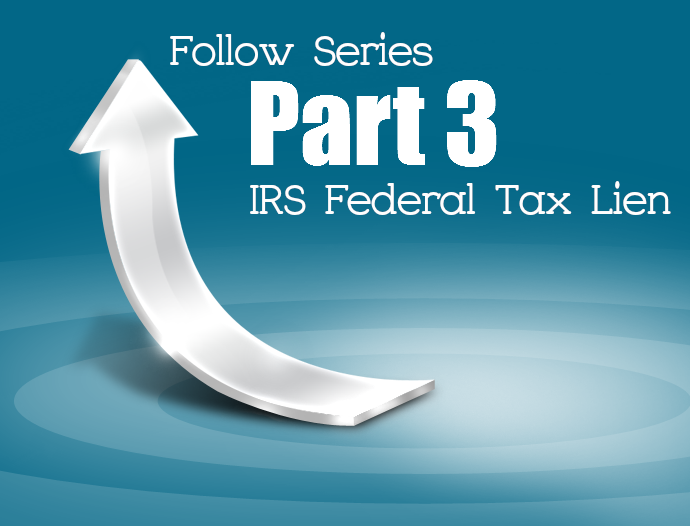What You Need to Know About IRS Federal Tax Lien | Part One

What You Need to Know About IRS Federal Tax Lien
If you have unpaid taxes, you may be surprised to learn that the IRS has a lien against your property. The IRS federal tax lien is the tool that allows the IRS to collect unpaid taxes. The IRS’s federal tax lien can have a devastating impact on your personal finances. This is the first installment in a three-part series that explains what you need to know about the IRS’s federal tax lien.
The IRS’s Federal Tax Lien
A lien is a legal term for a right granted to a third party in property that you own. Like the IRS’s federal tax lien, a lien is basically a “you owe us” note that attaches to your property. It gives the creditor an interest in your property.
Most liens have to be filed in the public records to be valid. This is not only required for the lien to be valid, it is also required to give the lien holder priority over your other creditors.
Generally the first creditor to file their lien is given priority for property that you owned at the time the lien is filed.
The IRS’s federal tax lien gives the IRS an interest in your property. The IRS’s federal tax lien is different than other liens, however.
Unlike other liens, the federal tax lien does not have to be filed in the public records in order to be valid. The federal tax lien arises by operation of law once a federal tax is owed and not paid. Also, the lien may have priority over some other non-tax liens even if it is not filed in the public records.
The IRS’s Lien Notice
The IRS often files a notice of its lien in the public records. This puts others on notice that the federal government has an interest your property. This lets the other party know that they have a higher degree of risk if they choose to transact business with you.
The lien notice itself will list your name and address, type of tax owed, amount owed, and tax years for which taxes are owed.
This publicly filed notice will be reported to the major credit bureaus and it will factor into your credit score. This can cause you to be denied credit and cause existing lines of credit to be closed by your lenders. Because some employers check your credit history before hiring you, it can also result in you not being hired by employers.
The IRS’s federal tax lien notice can also prevent you from selling or otherwise borrowing against your property. For example, with real estate, the title company will normally remit any proceeds directly to the IRS to satisfy your unpaid tax debt.
Conclusion
You must act quick to address unpaid taxes to avoid these consequences. This is particularly true if you have received the IRS notice of federal tax lien.
We can help. We help taxpayers with tax liens daily. If you have an IRS tax lien, we would like to hear from you. Please contact us today to schedule an appointment to see how we can help.
Empowered Tax Relief,
BLOG: www.irstaxtrouble.com | Q & A:

